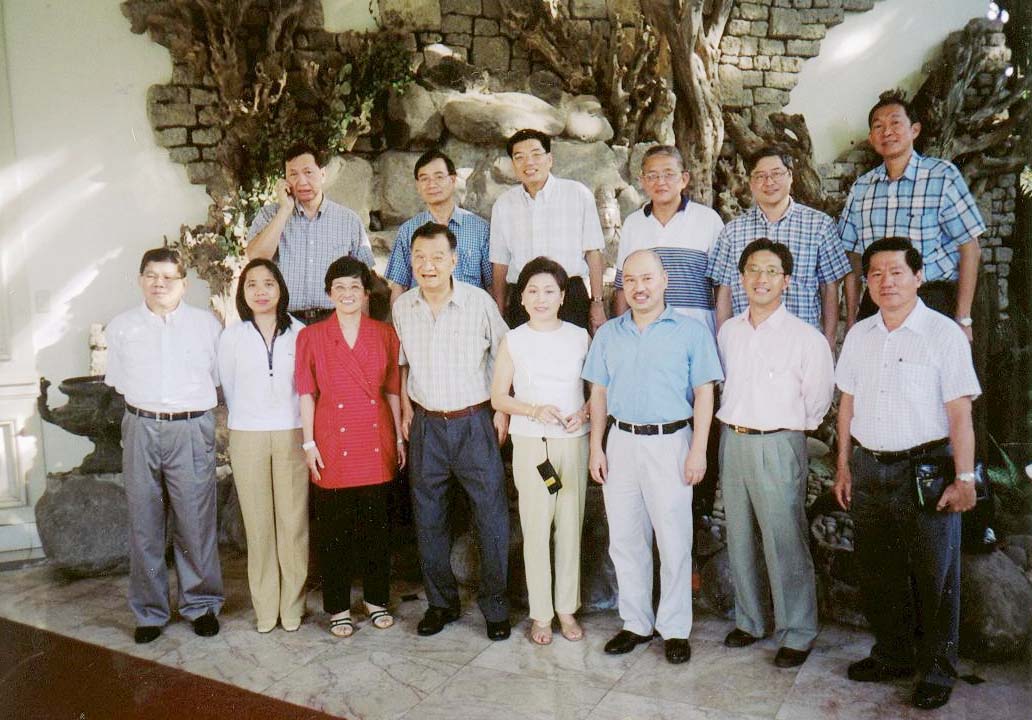In a chance meeting at the sprawling outdoor gardens of San Agustin church in 1990, I discussed with Angelo King the work that I had been doing. I shared that working with a nongovernment organization rather than in the more lucrative corporate world was a deliberate choice for me.
He listened intently as I shared with him the work that Kaisa does. He seemed impressed and he asked me how he could help. I told him we could do much more, but needed funds to do so. I didn’t even ask him to help but after that talk, he gave Kaisa P100,000 to help with our outreach and research work.
That started the friendship and the continued support. He would invite me and my kids to his house or to have dinner at the Manila Polo Club. One time, he looked at my two kids and asked how I support them.
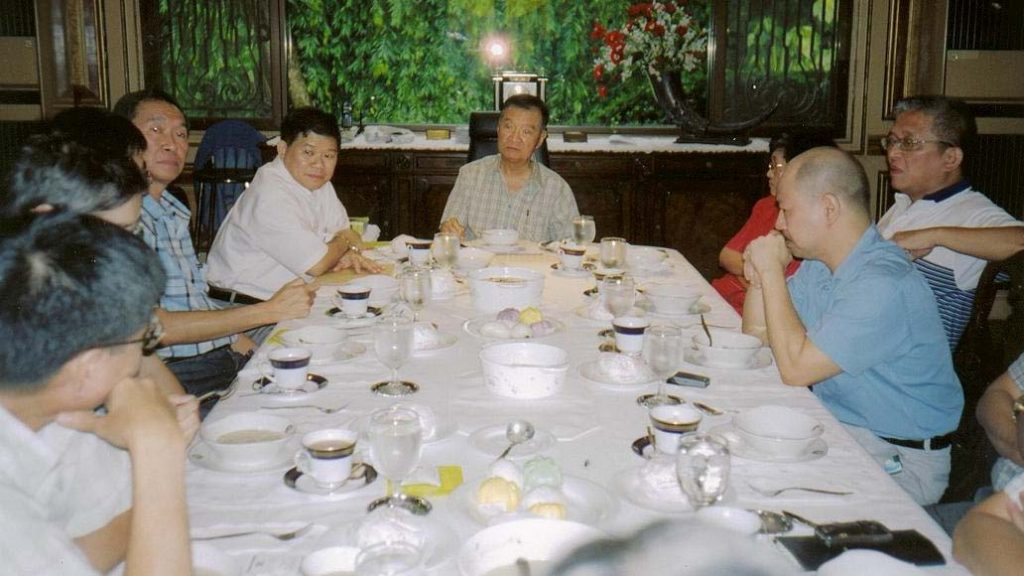
It opened up a discussion about my late husband, Chinben See, an anthropologist, and the dreams he had for a heritage center. I gave him a copy of my late husband’s book where I wrote an epilogue about how he, on his hospital bed and in his frail handwriting, wrote down his plans for the heritage center.
King asked me what was preventing me from carrying out that dream and I told him nothing but the lack of resources. He promised right then and there to help Kaisa fulfill the dream.
I couldn’t contain my joy and excitement that at last, my husband’s wish would be fulfilled. The plan was immediately shared with Kaisa.
Now, that center stands proudly in the heart of Intramuros, the walled city where the Spaniards put up cannons on top of the walls to keep the Chinese out.
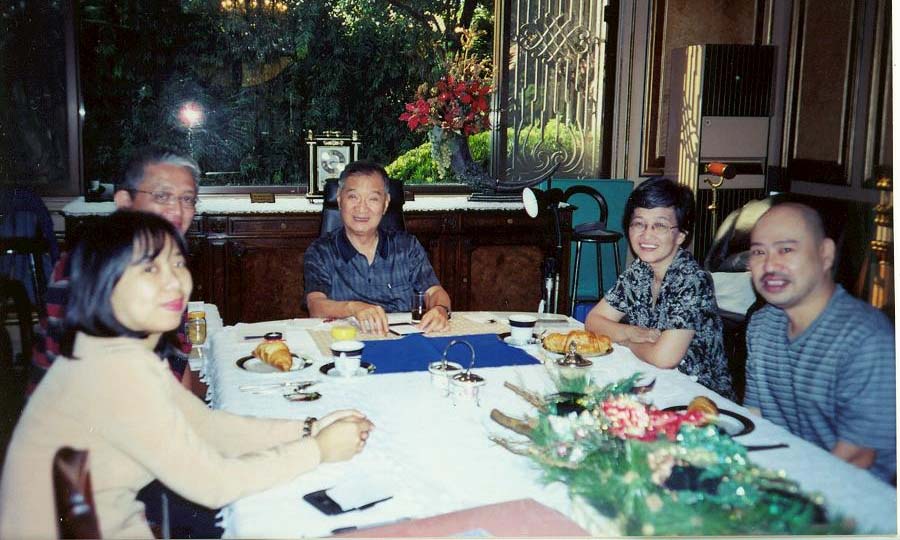
Bahay Tsinoy, a museum of Chinese in Philippine life, has entertained heads of state, ambassadors, politicians and Philippine presidents. The late President Corazon C. Aquino was at the ground breaking in 1995, inaugurated the Center in 1999 and opened the third floor gallery in 2002.
King advanced the funds to buy the land and for mobilization of construction materials and contractors to put up the building. His family’s philanthropy and work are proudly displayed in the Tsinoys in Nation Building gallery of the three-story edifice proudly standing at the corner of Anda and Cabildo streets.
King’s name now rings a bell among many Filipinos, owing to the many buildings he has generously donated to academic and medical institutions.
On busy E. Rodriguez Ave. in Quezon City stands the Angelo King St. Luke’s Medical Center. At La Salle’s College of St. Benilde, one notices the Angelo King Research Center. At Xavier School in San Juan, there is the Angelo King Multi-Purpose Center.
Outside Metro Manila, there is the sprawling Angelo King Research Center for Alternative Medicine at the De La Salle University in Dasmariñas, Cavite and the Angelo King Center for Research at Silliman University in Dumaguete City.
King has also put up more than a hundred farmers’ centers nationwide. The multi-purpose centers have made a lot of difference in farming communities. It is at these centers that farmers get training on new agricultural methods and alternative sources of income from their land. Many double as storage area for the farmers’ harvest. Some centers are used for processing and canning food products and manufacturing handicrafts that help augment the farmers’ income.
Most of these were done through the Philippine Business for Social Progress.
King quietly gave funds for the repair and modernization of the Martin de Porres Hospital, other orphanages, charity houses and clinics, so quietly that some of the administrators did not even know that he was responsible for what they have.
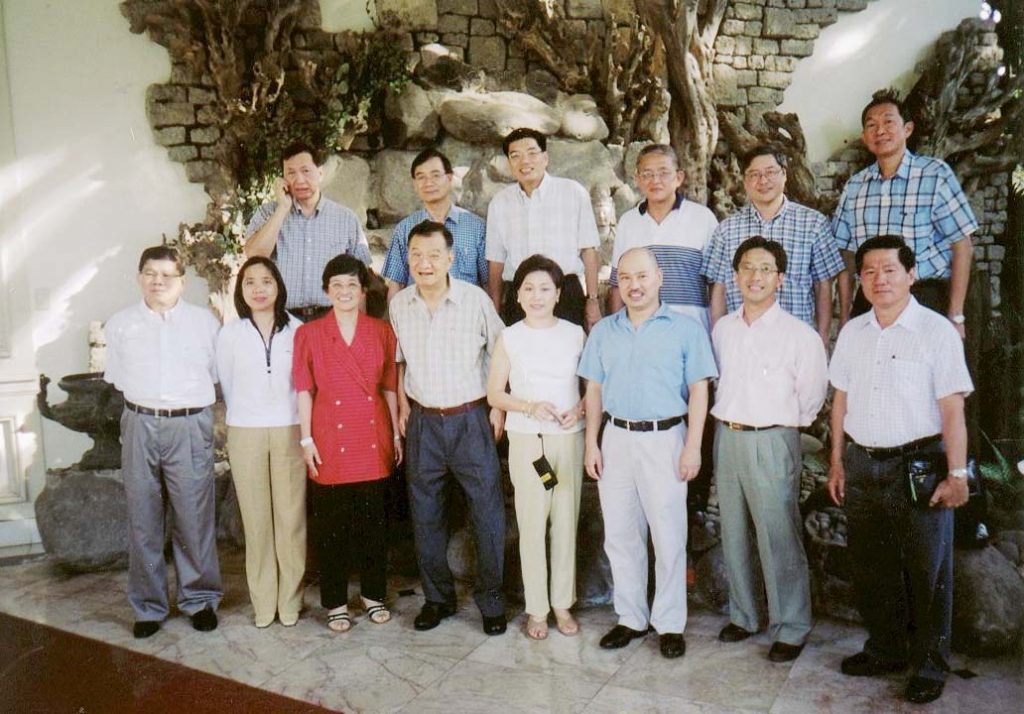
In 2003, through Kaisa, King gave a grant for the publication of the 12-volume Encyclopedia of the Chinese Overseas in China. Following that, he supported the Peking University in publishing books and research on the Chinese overseas.
When King’s health started to deteriorate, his sons, the late Archie and Wyden, with nephew Teddy Kingsu, took over the helm of the Angelo King Foundation and continued his legacy.
The sprawling Angelo King Farmer’s Center at the GK Enchanted Farm in Bulacan was one of the last projects Archie oversaw.
Tony Meloto, founder of Gawad Kalinga, wrote of Archie: “He was one of the greatest Filipinos I have known. His concern for the poor was always matched with action.”
Since 2006, Archie had built an average of 10 to 15 livelihood centers every year in GK villages all over the country.
As a founding trustee of the GK Enchanted Farm Village University in Angat, Bulacan, the first social enterprise complex of its kind in the world, Archie provided classrooms and scholarships for bright but poor children of farmers and relocated informal settlers.
After Super Typhoon Yolanda hit, Archie built a whole GK village for the victims in Antique. Another one is being completed in Negros Occidental.
When his father turned over his motel businesses to his sons, Archie inherited Victoria Court while Wyden got Anito Lodge. Since the 1980s, Archie had changed the image of Victoria Court into a wholesome and family-oriented enterprise.
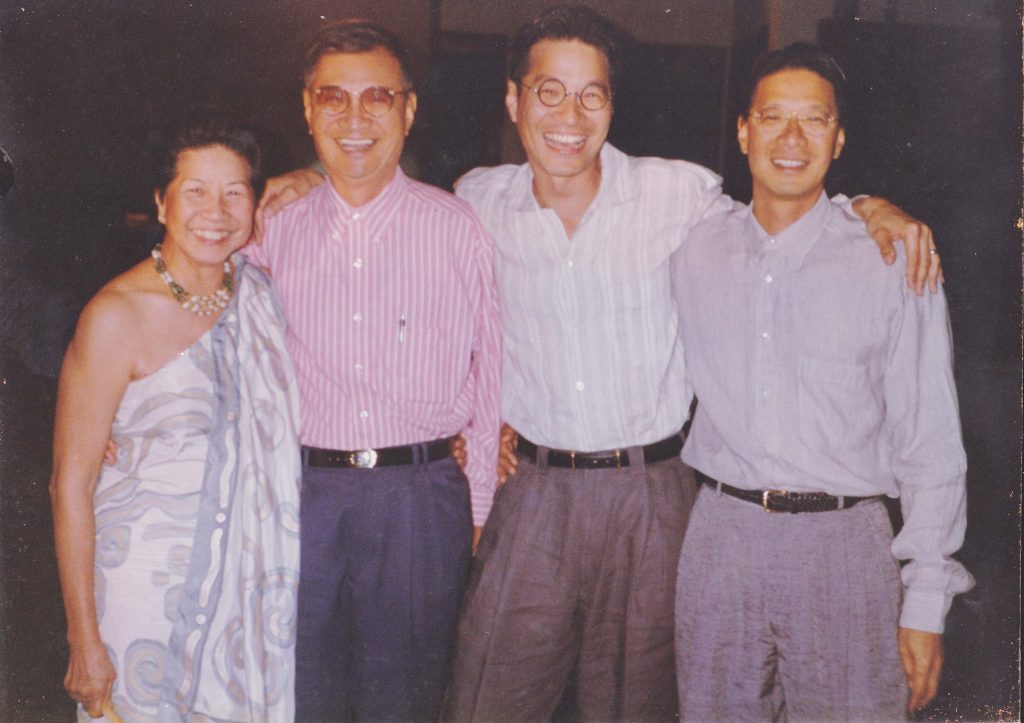
In 1989, Archie, then 36, introduced the boutique hotel concept in the Philippines with the opening of La Corona, managed by the Best Western Group. By 2009, his sons were running the business, relegating him to being merely the “chief innkeeper.”
But always, his businesses supported programs on education and anti-poverty.
After leaving the business world, Archie focused on fitness and health, traveling and doing humanitarian work. He delved into mysticism, practicing Taoism, and became a follower of Mantak Chia, who developed a system of developing the human life force or the chi for healing the self and improving well-being.
This self-healing he focused on especially after he was given a second life after lying in coma at a German hospital for three months last year.
His death on July 5 in a helicopter crash in Batangas shocked family and friends. The many facets of his life – as adventurer, nature lover, health buff, mystic, philanthropist, visionary – were extolled by those who knew him, those who had benefited from his generosity, those who loved him.
His brother Wyden said of Archie: “In business, he was hands-on. Archie was thorough and paid attention to details. He worked hard but with restraint. He was easily content. He wanted to enjoy his money, but he also gave to charity. He was kind, forgiving and never held grudges. He had a big heart.”
First published in Tulay Fortnightly, Chinese-Filipino Digest 28, no. 4 (July 21-August 3, 2015): 11.
